Vinny Peculiar - Interview
by John Clarkson
published: 3 / 5 / 2014

intro
John Clarkson chats to Manchester-based singer-songwriter and cult musician Vinny Peculiar about his new compilation album, ‘The Root Mull Affect’
Manchester-based singer-songwriter and cult musician Vinny Peculiar has recently released on Cherry Red Records his first compilation album ‘The Root Mull Affect’, which features outtakes and remixes of songs from across his lengthy solo career. Peculiar, a former mental health nurse, was brought up in a village in the Midlands, and spent time living in both Birmingham and Liverpool before moving to Manchester in the mid-1990s. He is the front man with Parlour Flames, which are currently in hiatus and, featuring ex-Oasis member Paul ‘Bonehead’ Arthurs on guitar, released their self-titled debut album last year. Once described by ‘Uncut’ as the “Tony Hancock of pop”, Vinny Peculiar has since 1998 also recorded nine solo studio albums of semi-confessional alternative pop, and his music combines catchy tunes and choruses with social observation, humour and a sense of nostalgia for the past. His albums include the much acclaimed ‘Ironing the Soul’ (2002); ‘The Rise and Fall of Vinny Peculiar’ (2006) upon which his backing band included ex-Smiths’ members Mike Joyce and Craig Gannon; ‘Sometimes I Feel like a King’(2009,) and his last solo album ‘Other People Like Me’, which featured a guest appearance from Black Box Recorder’s Luke Haines. ‘The Root Mull Affect’ opens with ‘A Vision’, in which Peculiar recollects his younger self having a sudden visionary experience. Other tracks of note include ‘Jesus Stole My Girlfriend’ in which its narrator loses his girlfriend to Christianity; ‘Flatter and Deceive’, in which Peculiar self-castigating himself for what he sees as his parental shortcomings pays testimony to his daughter, and ‘Playing On the Pier’, the album’s one cover, written by his uncle Jim Wilkes, about a family day out at the seaside. ‘My Generation (I Said Goodbye’) meanwhile finds Peculiar regretting not remaining in touch with his childhood and teenage friends. In what is our third interview with him, Pennyblackmusic spoke to Vinny Peculiar about ‘The Root Mull Affect’. PB: Was your intention with ‘The Root Mull Affect’ to create something both for people who are relatively new to your music and who had perhaps discovered you through Parlour Flames, and also for those people who are long term fans? VP: I suppose it was a bit of both really. Cherry Red asked me if I would like to do a retrospective and I was really keen. It is an introduction to the past certainly, but I also hope that it will offer with the remixes and new versions something for those who have bought my previous albums. PB: You were quite late before you put out your first album. You were in your early forties. Had you always played music and done gigs or was it something that you came to latterly? VP: When I was in my early twenties, I was in a street theatre combo in the Midlands, but that was more connected to politics. That was the early 1980s. The first gig that I did was for patients in the hospital that I was working in at the time, and that was good. I would have been in my mid-twenties at the time. I always wanted to do more, but it was hard initially because I worked full-time and I had a young daughter at the time. In the 1990s - and when I was based in Liverpool - I was in a couple of bands. We used to do a hell of a lot of recording, but we didn’t put anything out. Like a lot of bands, we were waiting for someone to come up from London and to sign us and to give us this great record deal, but, while it happened for odd people, it never happened for us. I still have got a lot of that older material. Some of the people who were involved in those bands keep saying to me, “Oh, you should put that out.” It was great, but it was another lifetime ago. Maybe one day. PB: Your songs on your albums are credited to Alan Wilkes which is your real name, yet you are obviously known publicly as Vinny Peculiar. Iggy Pop once described Iggy Pop as being a larger-than- life extension to his birth name of James Osterberg. Do you see Alan Wilkes and Vinny Peculiar in the same way? VP: That is a beautiful question (Laughs). I don’t mind saying that, and to be compared in the same breath as the legend that is Iggy Pop is brilliant. Having a performance persona certainly gives you permission to expand a greater range of ideas I see Alan Wilkes as being a little bit different. I always remember when Mike Joyce was playing drums in the band that, if things weren’t going according to plan, he would turn around and say, “Oh God, I guess that he is having an Alan Wilkes moment. (Laughs)” PB: You also had the Smiths bassist Andy Rourke as well as Mike both in your backing band at one point. How did they become involved with you? VP: It was a long time ago and in maybe 2003. I used to run a club night with a friend at the Star and Garter in Manchester called Kitchen Sink Disco, and we had booked Andy to DJ, and he saw me playing and told Mike about me. This was at a time when they were both at a bit of a loose end and wanted to keep playing music, and Mike came to one of my gigs and really liked it, and it went from there. I had a load of songs at the time. I went to Sweden with Mike and Andy to record a single ‘Two Fat Lovers’, and then I made ‘The Rise and Fall of Vinny Peculiar’ in 2006 with Mike and also the Smiths' second guitarist Craig Gannon, who I had also been introduced to by then. Andy left after about a year. We are all still good friends. PB: You were involved with Bill Drummond as well in a project called Soup Art. What was that? VP: I met Bill Drummond in 2004. Bill was involved in this thing called Soup Art at the time, and I did probably thirty shows with him for it. He drew this line between Nottingham and Belfast, and if you lived on that line if you asked him to he would come to your house to make a vat of soup. It was a little eccentric, but it was great idea. The most interesting thing was that we ended up with a load of people who were interested in art and contemporary performance art inviting us over. Bill found a few KLF fans, but it was mostly curious, middle-class people. Bill would turn up and make a huge vat of soup, and we would all eat the soup, and then he would talk about the soup and the history of the soup line. The essence of why he was doing it was because it was a really nice thing to do. That was the message. A lot of people were looking at for more complex, intellectual reasons (Laughs), but if there was one we were trying to find it ourselves and couldn’t. I stay in touch with Bill. I have asked him to be an executive producer on a number of albums, but he has always said no. PB: You chose fifteen songs for ‘The Root Mull Affect’ . What was your criteria for selecting tracks? It can’t have been an easy job. VP: No, it wasn’t, but a lot of it came down simply to the natural evolution of availability. We managed to locate half of the two inch tapes for ‘Ironing the Soul’, for example. There were three or four tracks from that album that we didn’t have the files to do remixes. You have basically got to take the tapes. They then have to be baked and digitalised into files so that you can remix them in a modern way. They weren’t remixed in the studio. They were remixed digitally, but you can only do that with tracks that you have still got. I didn’t have any two inch tapes from ‘Sometimes I Feel like a King’ and so I couldn’t do anything from that. I am really glad that we got ‘Ironing the Soul’ because I had always wanted to revisit that album. We slightly tweaked the stuff off ‘Growing Up with Vinny Peculiar’, but we really liked those remixes that we had, so there are only slight differences there in contrast to the other differences PB: ‘Jesus Stole My Girlfriend’ is funny and tragic at the same time. All of your songs obviously have a degree of social observation. Was that based on anyone in particular? VP: It was based on me, but I exaggerated it for the song. When I was a young man, it did happen to me. In the song I have made it more dramatic than it really was. I hope that doesn’t ruin it for anyone. I don’t think that it is an uncommon situation. I have met people at gigs, who have told me that the same thing happened to them. I grew up in the Methodist church. My father was the church organist and my granddad was the local minister, which I found it fairly heavy going. My dad said to me when I was fourteen , “If you don’t want to go anymore, you don’t have to go anymore,” and I said, “Right. Thank you very much. I won’t then” (Laughs). I immediately stopped going to church, and that seemed to work for me, but a couple of years afterwards my girlfriend that I was seeing from the village, who had always been a part of the church, got more and more into it, while I moved more and more away from it. The song isn’t mean to be advertently anti-church. It is more about how things change in life. PB: ‘A Vision’ in contrast implies that you had some sort of spiritual experience. VP: Yes (Laughs). That more or less happened as it was in the song. Things didn’t seem right. They seemed more illuminated and vibrant. I felt faint and I had to sit down, just like it says in the song, and I had to take the day off sick. It lived on with me for ages, and so I wrote that song. There are some things in life that can’t be explained, and that was one of them. I felt as confused by it as much as I had a vision of the way things might be. I implied tin the lyric hat I had this great visionary clarity of “Right, now I know the truth,” but in reality it wasn’t as clean cut as that (Laughs). PB: ‘Flatter and Deceive’ throws in a lot of paternal guilt at not having always been around for her, but it is also a lovely tribute to your daughter. Has she heard it? What does she make of it? VP: She has heard it. She likes it, but she just says, “Oh Dad, you’re beating yourself up again.” She actually sang the backing vocal on that. I wouldn’t recommend managing your offspring in a studio situation (Laughs). She was a teenager at the time, and it started off with “Dad, no, I am doing it my way” and went downhill from there. In the end I had to leave it to Rob Ferrier, the producer, to sort out. PB: ‘Playing on the Pier’ was written by Jim Wilkes. Who was he? Was he the uncle whose death and funeral you describe on ‘Too Soon the Darkness’ on the ‘Parlour Flames’ album? VP: He was. He was very influential when I was my growing up life. He lived up North and came down to the Midlands, and he would take us out for the day, usually to the football. He was a poet and a jazz musician. ‘Playing on the Pier’ is one of his poems. I have always loved that poem because all of the people that he talks about in that poem are my family. He describes his brother which is my dad, so my dad is in it. He also mentions my grandfather, my grandmother and my aunt. It is a very family-centric thing. PB: A lot of your songs are about the past, but on ‘My Generation’ you seem to be almost rejecting the past and saying “Get over it! It is time to move on.” VP: That is exactly it. It is about leaving a small place and moving on and not hearing from that part of the past again. That said, now we are in the Facebook zone I get people contacting me from school who I haven’t heard from in years, which is always great. I am sure that happened to a lot of us. Out of the blue you bump onto somebody on Facebook that you haven’t heard from in years. PB: There is a strong emphasis on lyrics in your songwriting. Do you write lyrics first and build a song around them or does it tend to vary? VP: It tends to vary, but quite often I will write the lyrics first. Every so often I will sit with a ukulele or a guitar, and the first thing that comes out of my mouth will be the title to a song and then I will build a song around that, and half an hour on I will either have the song, structure and basic idea, or I will abandon it completely (Laughs). On other occasions I will write something down when I am sitting in a cafe, and come home and transcribe it onto a computer, and I will build up a lyric and idea and then I will put music to that. It is both really, but more often than not it will start with words. PB: You have got your own home studio now, don’t you? VP: Well, you could say that (Laughs). I am struggling with guitar sounds. I seem to be able to do everything else. You start to get very picky when you have a home studio (Laughs). It is one thing creating and writing and demoing and putting together all the ideas that make up a record, but when you want to make your songs sound great and you can’t really turn them up very loud at home it can be challenging. I am recording my new album there, which will probably be called ‘Sentimental Music’, at the moment. In the past I have always had a limited budget and only a week or so in the studios, and when it came to doing the vocals I always ran out of time. On my last couple of albums I have played quite a lot of the parts from bass to piano to acoustic and electric guitar, and by the end of the two weeks I have usually run out of energy and steam when it comes to putting the vocals down. It is a lot less pressure really being able to do things at home. I will probably do the bulk of the new album at home, and then go back into the studio to mix it and possibly to redo some of the guitar sounds. PB: What direction do you see ‘Sentimental Music’ taking? VP: It is even more eclectic than some of the other records that I have done. I have got a rockabilly track and a ska-influenced track. I have also got a track, the music for which was put together spontaneously by Ollie Collins and Che Beresford, who are the bass player and the drummer in Parlour Flames. Both of them play on the new album. I caught them doing some free-flowing improvisation and switched the tape on and used that as the basis for one of the tracks. I have also been working on another album called ‘Institution’. It is based on my experiences working in long-stay institutions in the 1980s and 1990s. It includes songs on community care and evangelical psychologists and the establishment verses the liberation. PB: Final question. Are you hoping to play a lot of gigs this year to promote both ‘The Root Mull Affect’ and ‘Sentimental Music’? VP: Yes. What I am really trying to work at the moment is to make my gig experience more theatrical and to use more poems and more of a story narrative. I am trying to work upon an idea to make it have a greater element of theatre. PB: Thank you.
Band Links:-
http://vinnypeculiar.comhttps://www.facebook.com/vinnypeculiarmusic
https://twitter.com/vinnypeculiar
https://soundcloud.com/vinnypeculiar
https://www.youtube.com/user/arthurcrabtree
Have a Listen:-
Picture Gallery:-

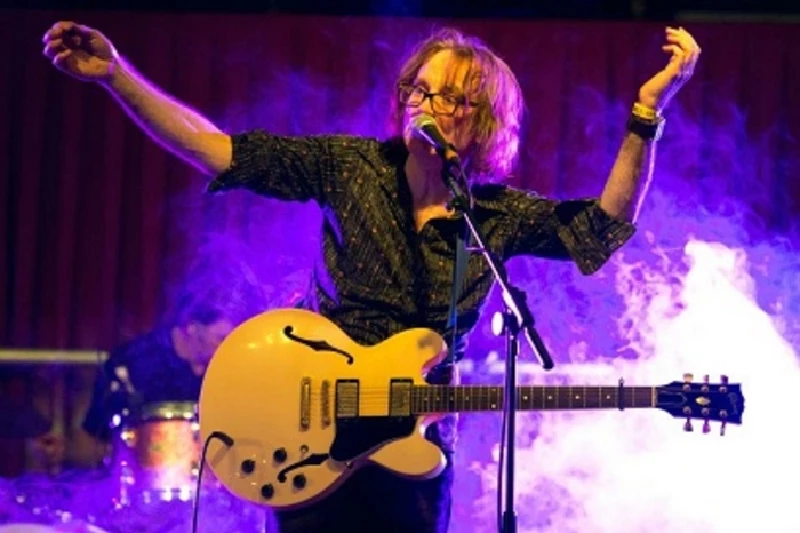

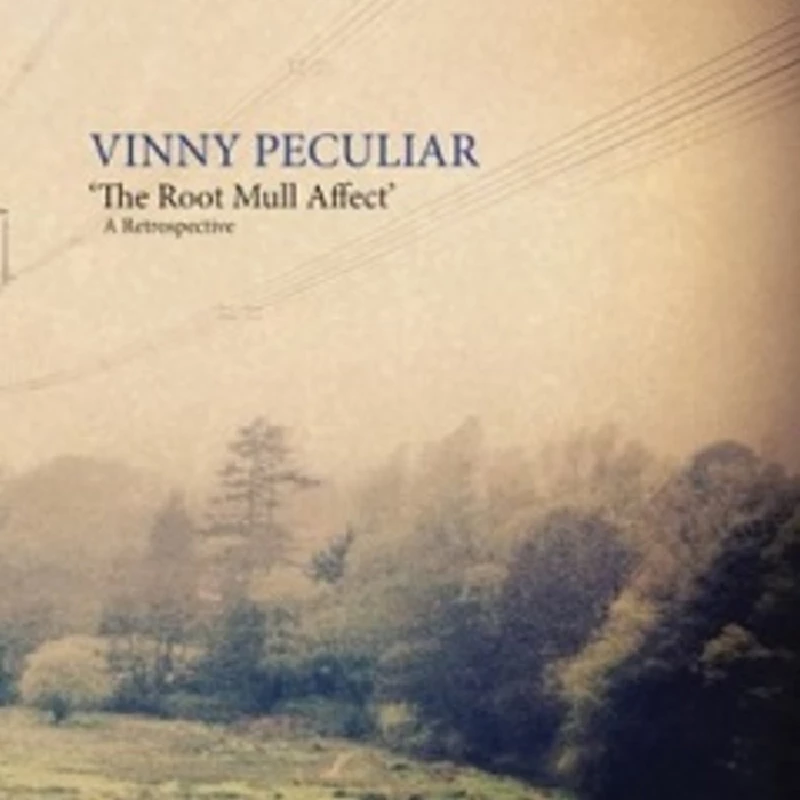
interviews |
|
Interview (2022) |
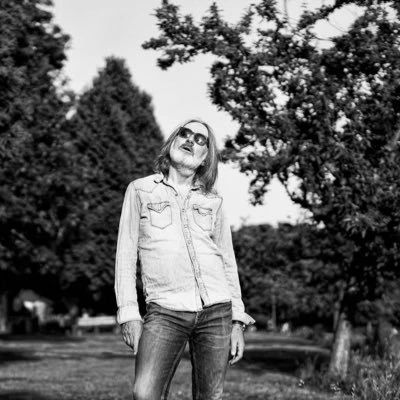
|
| Singer-songwriter Vinny Peculiar talks to John Clarkson about his 'three quarters' modern art-themed latest album, 'Artists Only'. |
| Interview (2020) |
| Interview (2019) |
| Interview (2016) |
| Interview (2015) |
| Interview (2007) |
features |
|
The Image That Made Me Weep (2020) |
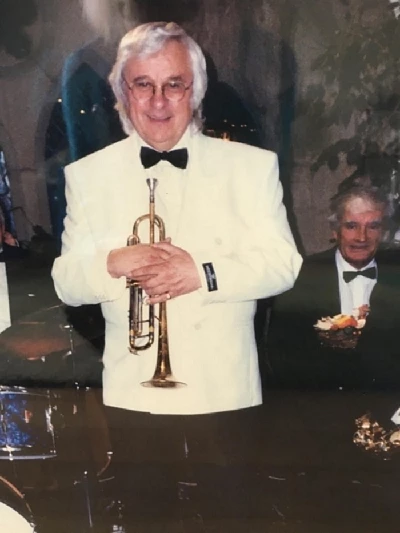
|
| In our new series 'The Image That Made Me Weep', we are inviting a different guest with each edition to write of a music image that has had an impact on them. Singer-songwriter Vinny Peculiar writes about a photograph of his uncle Jim Wilkes, who was a trad jazz musician. |
| Broadcast, Glasgow, 22/9/2016 and Voodoo Rooms, Edinburgh, 23/9/2016 (2016) |
soundcloud
reviews |
|
Things Too Long Left Unsaid (2025) |
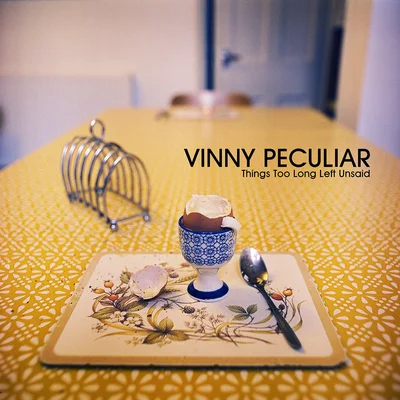
|
| Poignant but funny sixteenth album from Worcester-based cult musician Vinny Peculiar |
| How I Learned to Love the Freaks (2023) |
| While You Still Can (2019) |
| Return of the Native (2018) |
| Silver Meadows (2016) |
| Down the Bright Stream (2015) |
| The Root Mull Affect (2014) |
| Other People Like Me (2011) |
| Sometimes I Feel Like a King (2009) |
| Goodbye My Angry Friend (2007) |
| The Fall and Rise of Vinny Peculiar (2007) |
| Whatever Happened To Vinny Peculiar ? (2005) |
most viewed articles
current edition
Spear Of Destiny - InterviewRobert Forster - Interview
Fiona Hutchings - Interview
When Rivers Meet - Waterfront, Norwich, 29/5/2025
Carl Ewens - David Bowie 1964 to 1982 On Track: Every Album, Every Song
Brian Wilson - Ten Songs That Made Me Love...
Pistol Daisys - Waterfront, Norwich, 29/5/2025
Credits - ARC, Liverpool, 17/5.2025
Gary Numan - Berserker
Nils Petter Molvaer - El Molino, Barcelona, 24/4/2025
previous editions
Heavenly - P.U.N.K. Girl EPDwina Gibb - Interview
Boomtown Rats - Ten Songs That Made Me Love....
Oasis - Oasis, Earl's Court, London, 1995
Sound - Interview with Bi Marshall Part 1
Trudie Myerscough-Harris - Interview
Serge Gainsbourg - Ten Songs That Made Me Love...
Susie Hug - Interview
Chuck Prophet - Ten Songs That Made Me Love...
Ray Humphries - Interview
most viewed reviews
current edition
Peter Doolan - I Am a Tree Rooted to the Spot and a Snake Moves Around Me,in a CircleGarbage - Let All That We Imagine Be The Light
Little Simz - Lotus
Suzanne Vega - Flying With Angels
John McKay - Sixes and #Sevens
Only Child - Holy Ghosts
Vultures - Liz Kershaw Session 16.06.88
Eddie Chacon - Lay Low
Billy Nomates - Metalhorse
HAIM - I Quit
Pennyblackmusic Regular Contributors
Adrian Janes
Amanda J. Window
Andrew Twambley
Anthony Dhanendran
Benjamin Howarth
Cila Warncke
Daniel Cressey
Darren Aston
Dastardly
Dave Goodwin
Denzil Watson
Dominic B. Simpson
Eoghan Lyng
Fiona Hutchings
Harry Sherriff
Helen Tipping
Jamie Rowland
John Clarkson
Julie Cruickshank
Kimberly Bright
Lisa Torem
Maarten Schiethart